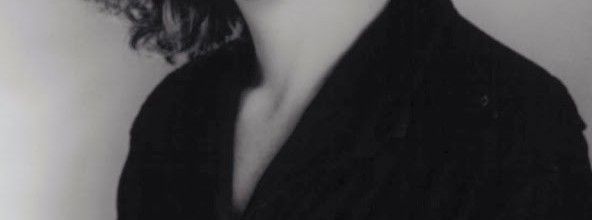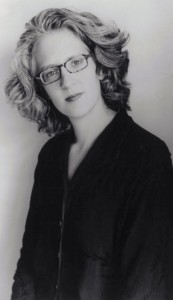
 Novel Review: The Mistress of Nothing
Novel Review: The Mistress of Nothing
Kate Pullinger’s novel, The Mistress of Nothing, is an historical work that has a number of layers. First there’s some historiography – the characters in the novel, by and large, were real people with a well-catalogued reality, like Lucie Duff Gordon, darling of Victorian intellectual society. Second, there’s an imaginative reconstruction of the life of one character, Sally Naldrett, who was definitely a person, and maybe even a personage, but who vanished from the historical record at a very interesting point in her own life. Third, there’s a subtle exploration of ‘the other’ through Lucie Duff Gordon’s penetration of Egypt and Sally’s surrender to an Egyptian.
That last sentence sounds a bit bodice-ripping and I wouldn’t want to mislead: this is no flimsy or throbbing account – it’s a neat, deft exploration of two women’s lives, lived against Victorian morals and philosophy, with the monster of class looming over both. It is Sally, determined, resourceful, loyal and hard-working, who pays the price for giving in to Egypt, and she pays it to Lady Duff Gordon. The cost of daring to step out of her role as lady’s maid is high, and because this is no flight of fancy, Sally does not surmount her situation to become a heroine in the classic romantic fiction sense. Rather she survives it by remaining, by using her obdurate common sense and practical skills to allow her to endure. The novel is dense with meaning, although that complexity of content is never telegraphed, and it reads beautifully, with the calm acceptance of Sally’s point of view: that of a woman who has never been able to determine her own fate and who suffers a harsh penalty when she does. It’s also a picturesque novel, in the true sense of the word, with a series of scenes in which Sally is an observer, which deepen inexorably into a lived reality as she becomes more self reliant and escapes her social constrictions to experience Egypt on her own terms.
Kate was kind enough to answer some of my questions about the writing of the novel and the ethics involved in creating fiction out of known history.
Historical novels have their own demands and complexities, and I wonder what compensations you find for embroiling yourself in this exacting discipline?
Well, I found this novel very difficult to write and part of my difficulty was that I didn’t want to show my research in the writing – I don’t like historical fiction where you get a strong sense of the writer’s research. But there were many compensations and/or pleasures in the writing as well. The research itself was great fun and this period in Egyptian history is fascinating – the period during which they were building the Suez Canal. And Egypt is a fascinating country, very beautiful and endlessly complex and confounding. As well as that, the story itself never failed to grip me – I don’t mean my version of it, but the actual story, (as you know, the novel is based on a true story): Sally, Lucie, and Omar, and what transpired between them.
The Mistress of Nothing employs a first person voice, which limits the knowledge that Sally can have of the thoughts and interior life of others, and is notoriously difficult to pull off. It seems to me that you’ve used this limitation very well to delineate the relationship between Sally and Lady Duff Gordon and between Sally and Omar – in both cases their world, although intersecting hers, is inaccessible to her and remains unknown even after years of intimacy. To what extent were you deliberately focusing on the limits to knowledge, power and self-determination that women, especially working women, had during this period?
I went through many drafts of the novel where I kept altering the point of view, or rather points of view, including writing from Omar’s pov, using more of Lucie’s own writing and some of her pov, as well as third person sections. This is part of the reason that the book took so long to write! It wasn’t until I put it all into Sally’s voice, very late in the process, that it finally began to work structurally. I have no idea why this took me so long to figure out – it seems obvious with hindsight! All through this process I was indeed writing about power and self-determination, and the fact that Sally’s sense of her own freedom was false, and is revealed to her to be false. I was also fascinated by the way that Lucie was such a radical and so progressive in virtually every other sphere of her life: in a way, this is the spark of the novel – why would Lucie react to the situation in the way that she did? How could Sally, so cautious in every way as a person, take this path?
You are right that first person is so hard to get right, and so limiting to what you can do as a writer. But at the end of the day, telling the story from Sally’s point of view worked for me.
Another issue that touches closely on my last question is what Edward Said encapsulated as Orientalism, the mysterious ‘other’ that was a particularly prevalent notion during the Victorian era. You manage to avoid making Omar into this ‘other’ not by explaining him but by doing the opposite. We have almost no idea why he behaves as he does; his motives and feelings are never clear to us and this gives the book a reality which is very human in scale. Was it difficult to keep yourself from deeper exploration of such fascinating characters as Omar and Lucie Duff Gordon or was Sally always central to you?
Thanks for this, as this is hugely important to me. Egypt is a Land of Cliches, when it comes to outsiders’ views of the country, and Victorian Lady Travellers also potentially reside in the Land of Cliches, and I wanted to avoid Orientalism as best I could. What you outline in this question is the very problem with the first person, and in earlier drafts I delved much more fully into what was going on in Omar and Lucie’s heads. For me a big part of figuring out how to show Omar, albeit very indirectly, was by writing about his family and, in particular, his first wife Mabrooka. The relationship between Sally and Omar’s family replaces the relationship between Sally and Omar, in a way. So, in answer to your question, I did delve very deeply into these characters, and I believe that this work/exploration is in the book, even if it isn’t evident on the pages, if you see what I mean.
It’s taken you a long time to write this book. Many writers at the beginning of their careers will wonder what made you persevere for over a decade: was it the characters, the historical period, or something else that kept you wrestling with an intransigent narrative?
I think I’ve probably already answered this above – it was all of these things, but the scene that gripped me first, when I read Katherine Frank’s wonderful biography, ‘Lucie Duff Gordon’, was Christmas Eve, in a boat on the Nile, and the dramatic events that took place that night. This is where I first got the idea for the novel, and this was the scene that I returned to in my mind’s eye, while I was struggling to find the right way to write this book. This accompanied by the fact that no one knows what actually happened to Sally after she left.
Is there a different approach to writing for each of the different fields you’ve succeeded in? Short stories and historical novels are quite different animals – do you write them in different ways?
Yes, very different animals. Novels are so unwieldy, while short stories are all about economy and precision. Not a lot in common, apart from typing, really. Same goes for the work I do in the digital realm; there I find the skills that I developed whilst learning how to write screenplays come into focus as much as any skill in prose fiction. The mindset is different for each genre, though the basic principles are the same – it’s all very slow and time-consuming and requires many, many drafts.
What really interests me in this kind of work is that you (the writer) must strike a balance between historiography and the narrative tension you want to build, to have the story develop with the right form of creative tension. It’s very different, I assume, to the digital work you produce. Presumably you had to draw lines around the liberties that you would take: I know you telescoped two years into one, but what else did you feel had to be adjusted and how on earth did you make those decisions about what you could and couldn’t change?
The thing that enabled me to write a fiction based on this true story is that nothing is known about what happened to Sally after she left Luxor. No records for her have been found – there is no record of her death in England, for instance, which does suggest she stayed in Egypt – so no one knows what happened to her. This was what allowed me to create a story. Early readers of various drafts urged me to leave behind the known facts, but I was less willing to do this with the character of Lucie Duff Gordon. For instance, a couple of early readers suggested to me that Janet Ross, Lucie’s daughter, should take a bigger role in the story, but I was reluctant to do that because, like her mother, a lot has been written about Janet Ross, and she was also a writer. So, apart from a few minor liberties, I stuck to the facts pretty much until I was able to escape from that into fiction, through the story of what happened to Sally after she left. I think if, for instance, Lucie’s biographer, Katherine Frank, had found out what happened to Sally after she left, I wouldn’t have wanted to write this novel.
P.S. A final point from me – covers are subjective, as everybody knows, and I am unusually pernickity about them. I wasn’t enthralled by the cover on the proof copy so I haven’t used it. One thing that’s even more difficult than cover images is author photos, and I happen to think Kate’s is glorious, so I chose to share that instead!


2 Comments
Dave King
20th July 2009A compelling review – and I agree with you about the author photograph.
Kate Pullinger
20th July 2009Well, thanks folks, but that photo is a decade old… there are much more recent ones in circulation, but somehow that one keeps coming back to haunt me, like the reverse of The Picture of Dorian Gray… I get older but my author photo stays young. Sigh.